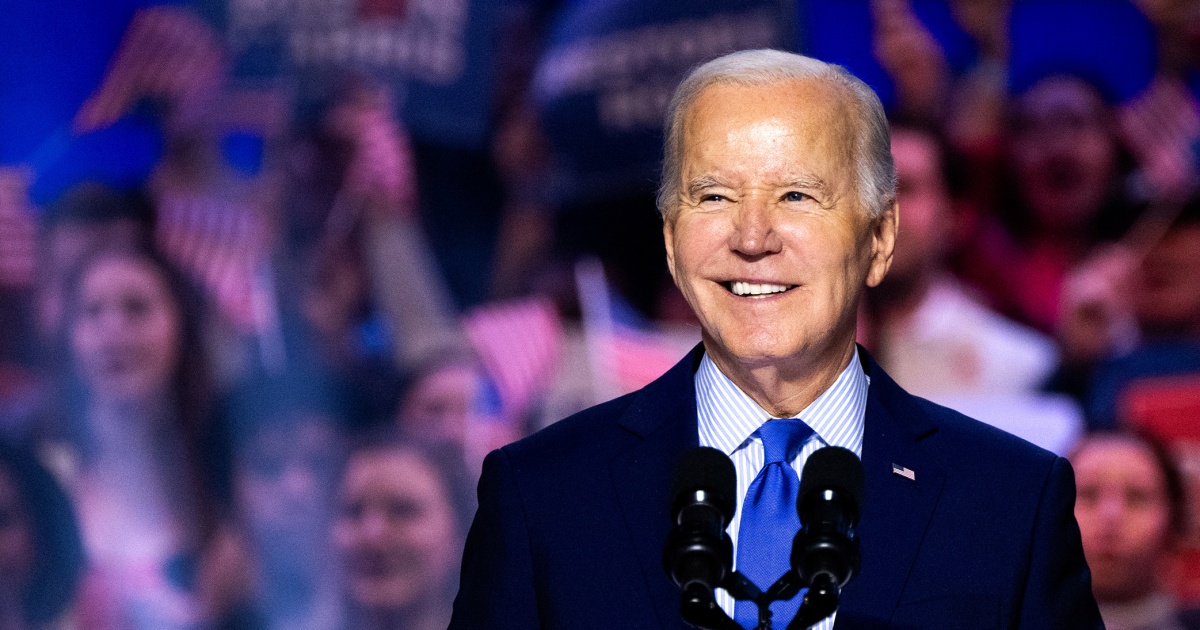When
Donald Trump and his allies set about
falsely claiming that an impending Senate immigration deal would greenlight 5,000 undocumented immigrants per day, lead GOP negotiator Sen. James Lankford (R-Okla.) predicted what would happen when the actual text of the deal was released and they were proven wrong.
“None of those folks are going to look at it and come to the press and apologize,” Lankford
said last week. “They’ll find something different.”
The text of the bill was released Sunday night. It doesn’t support Trump allies’ claims. And not only are they not apologizing; they’ve ramped up the rhetoric in stunning ways, with some falsely labeling the bill “amnesty.”
The almost-instantaneous pushback from the congressional right Sunday night was a sight to behold. Despite Lankford’s helping craft a bill that his Senate GOP allies have
labeled a remarkably conservative one — one that is certainly more conservative than other recent immigration efforts, in that it includes no new protections for undocumented people already in the country — plenty of Republicans quickly served notice that they will go to great lengths to kill it.
And the counterfactual claims they made certainly bolster the argument, as
Lankford and
others have posited, that they would rather not pass anything in this election year, when the border crisis is
bolstering Donald Trump’s 2024 hopes.
“Amnesty” was the watchword Sunday night. It was invoked by scores of House Republicans and some GOP senators. Rep. Mary E. Miller (R-Ill.) said, “The Senate AMNESTY bill erases our borders.” Rep. Marjorie Taylor Greene (R-Ga.) wagered that anyone who voted for the “open border amnesty bill must be paid off by foreign interests and is acting as a foreign agent.” Donald Trump Jr. used the A-word in four consecutive posts on X.
Sign up for The Campaign Moment newsletter
The core of the argument is that the deal mandates a shutdown of the border once there are an average of 5,000 border apprehensions in one week. Trump, House Speaker Mike Johnson (R-La.) and many others have suggested that this amounts to proactively allowing that number in. Some have extrapolated it to suggest that the bill green-lights 1.8 million people over the course of a year.
ADVERTISING
House Majority Leader Steve Scalise (R-La.) invoked the 5,000 number late Sunday while saying flatly that the House won’t vote on the deal. He claimed it “accepts 5,000 illegal immigrants a day.”
This is
false. That’s merely the point at which a
very restrictive process kicks in (it would also kick in if crossings reach 8,500 in a single day). At that point, no new asylum claims from those apprehended would be considered, and anybody caught crossing the border would be removed.
The key here is that, under existing law, those apprehended right now
must go through a process as long as they make it to U.S. soil. If they claim asylum, that must be considered. They can’t instantly be deported. And even under the current system, as Glenn Kessler reported in
The Fact Checker, in the last six years, an average of only 15 in 100 people who claimed asylum were ultimately granted it, according to the Justice Department.
The bill also makes that asylum process quicker and more difficult. It raises the standard for those claiming that they face a “credible fear” of persecution in their home country and requires them to show they couldn’t simply move somewhere else. It aims to ensure their cases are decided within months rather than the current average of years, in part by empowering U.S. Citizenship and Immigration Services to make decisions — rather than backlogged federal immigration courts.
The word “amnesty” gets thrown around a lot by border hawks whenever there is a significant effort at immigration reform. But rarely has it been so overextended.
One could argue that the Senate bill doesn’t go far enough in cracking down on abuses of the asylum system. But that’s not really the argument being made; instead, the suggestion is that the bill would somehow actually be a
boon to those who would cross the border.
The fact that the rhetoric so quickly went there after the release of the bill would seem to reinforce the idea that Republicans have buyer’s remorse about asking for changes to immigration law as part of a deal to send more money to Ukraine. They’ve spent years
asking for a tightening of asylum rules, including in recent years during the Biden administration. But when it looked like Lankford and the Senate were about to actually produce that, the critics set about
moving the goal posts. Suddenly, those new immigration laws weren’t really even needed — just a president with the will to enforce the existing laws. (Never mind that Trump himself
asked for such changes during his own “crisis” as president.)
Does Biden need a new law to ‘shut down the border’?
That highly expedient shift was telling, and the building push to label the bill amnesty is certainly of a piece.
Or as Lankford himself put it Monday morning: “The key aspect of this, again, is: Are we as Republicans going to have press conferences and complain the border is bad and then intentionally leave it open?”

 www.foxnews.com
www.foxnews.com

 Sign up for Prompt 2024 to get opinions on the biggest questions about the 2024 election cycle
Sign up for Prompt 2024 to get opinions on the biggest questions about the 2024 election cycle
